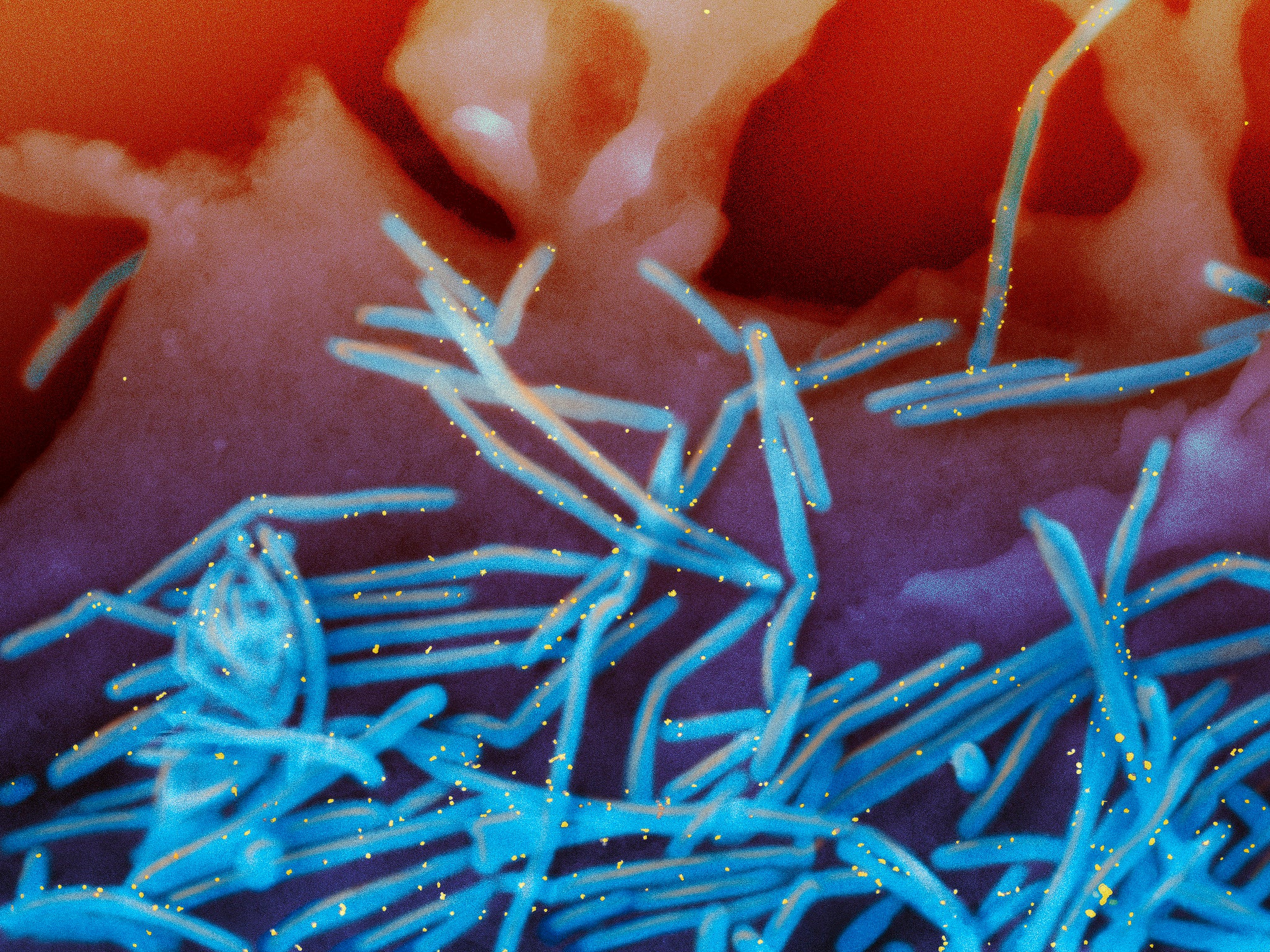Vaccine panel more strongly endorses RSV shots for oldest Americans
Federal advisers are making a stronger endorsement for RSV vaccinations for people 75 and older

Your support helps us to tell the story
From reproductive rights to climate change to Big Tech, The Independent is on the ground when the story is developing. Whether it's investigating the financials of Elon Musk's pro-Trump PAC or producing our latest documentary, 'The A Word', which shines a light on the American women fighting for reproductive rights, we know how important it is to parse out the facts from the messaging.
At such a critical moment in US history, we need reporters on the ground. Your donation allows us to keep sending journalists to speak to both sides of the story.
The Independent is trusted by Americans across the entire political spectrum. And unlike many other quality news outlets, we choose not to lock Americans out of our reporting and analysis with paywalls. We believe quality journalism should be available to everyone, paid for by those who can afford it.
Your support makes all the difference.Federal advisers on Wednesday made a stronger endorsement for RSV vaccinations for people 75 and older, but offered a narrower recommendation for people 60 to 74.
The committee's recommendations go to the head of the Centers for Disease Control and Prevention, who will decide whether to pass them on to doctors and the public.
A year ago, the same advisory group said that people 60 and older should simply talk to their doctors about whether to get the shots. Physicians have said that kind of lukewarm recommendation is confusing to patients, challenging to explain, and a likely reason that fewer than 25% of older Americans have gotten a shot.
RSV, or respiratory syncytial virus, is a common cause of cold-like symptoms but it can be dangerous for infants and the elderly.
Last year, the U.S. Food and Drug Administration licensed single-dose RSV vaccines made by two companies, GSK and Pfizer, for older people. At the time, the vaccine advisers refrained from saying all older Americans should get the shots because of questions about possible side effects and the duration of protection.
Some of those questions still exist, and panel members on Wednesday declined a request by vaccine manufacturers to more forcefully recommend the shots for all Americans 60 and older.
Instead, they voted that people 75 and older should get the shots and that those 60 to 74 should do so only if they are higher risk for severe disease. The panel also declined to endorse giving the GSK vaccine to people in their 50s, even though the FDA this month licensed the company's shot for that age group.
Panel members said data has demonstrated that the shots make sense for all people 75 and older, because they are at higher risk for severe RSV cases.
For people who are 60 and older, the conditions that put them at higher risk of severe illness include chronic heart disease, advanced-stage kidney disease, chronic lung illnesses and severe obesity. About 39% of people in that age group would qualify under the strictest interpretation of that guidelines, CDC officials said.
Underlying the panel's hesitancy are reports of a nervous system disorder, Guillain-Barre syndrome. Though rare, there have been a higher-than-expected number of Guillain-Barre cases among RSV vaccine recipients, particularly in those who got the Pfizer shot.
FDA officials on Wednesday said there is no clear evidence that the shots are causing the disorder, but some panel members noted research is ongoing.
“I do agree with the overall conclusion that the risks of RSV vaccination are greatly outweighed by the overall benefits," said one panel member, Dr. Camille Kotton, an infectious diseases expert at Massachusetts General Hospital. “Nonetheless, I remain quite concerned” about recurring indicators of Guillain-Barre in vaccination surveillance data, she added.
___
The Associated Press Health and Science Department receives support from the Howard Hughes Medical Institute’s Science and Educational Media Group. The AP is solely responsible for all content.